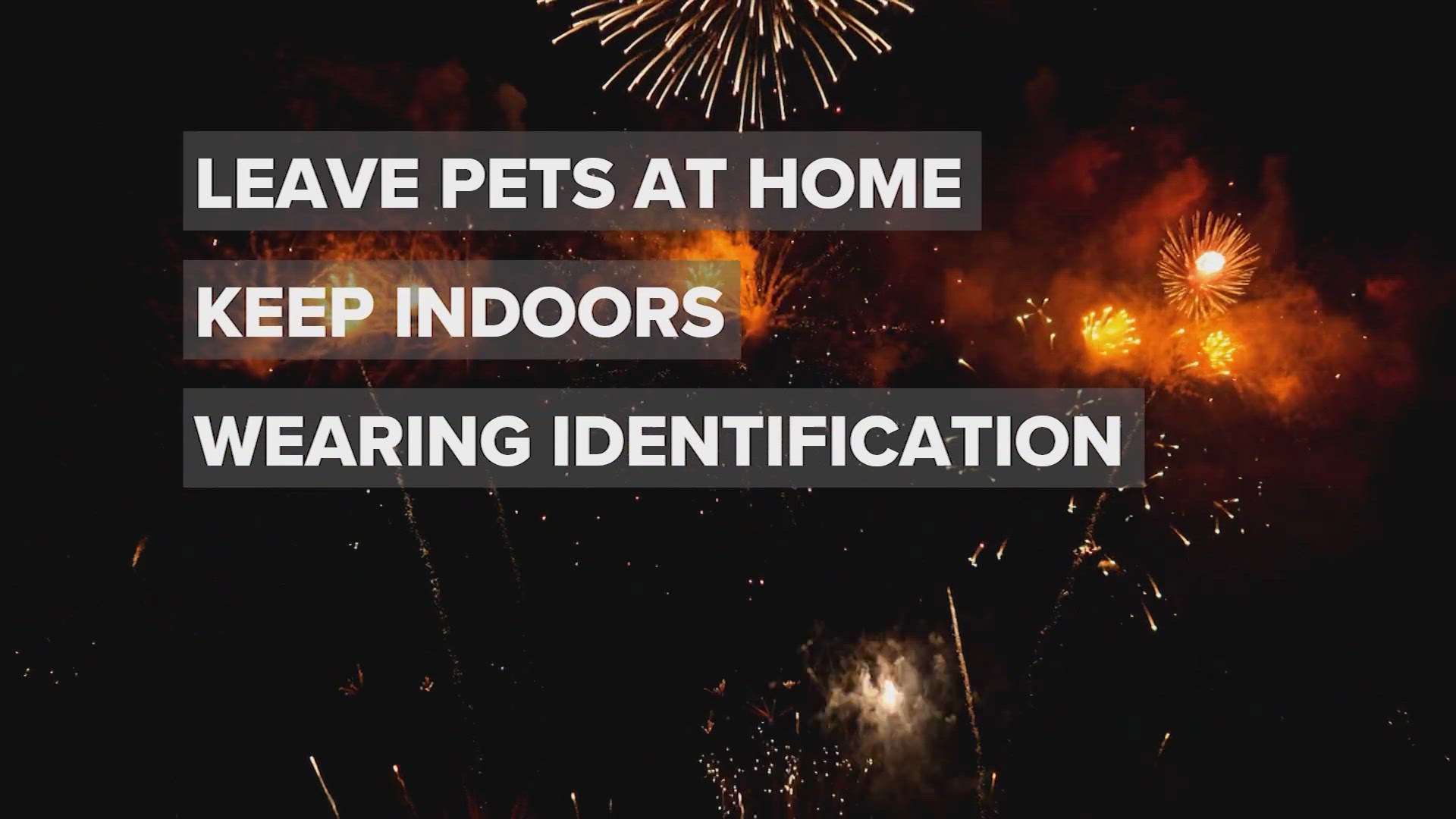HOUSTON — The fireworks a lot of Houston-area residents will be enjoying tonight can be a nightmare for pets.
In fact, more pets go missing on the 4th of July than any other day of the year due to the loud noises and large crowds, experts say.
“If your animals are scared of thunder, they’re probably gonna be scared of the fireworks,” explained Rene Vasquez, Executive Director of Fort Bend County Animal Services. “It’s all about keeping them distracted.”
The safest thing to do is keep your animals inside so they don't run away.
If they must be outside, Vasquez urges owners to put a collar and tag on their pet, fence them in, or use a leash if they’re out and about.
“If you don’t have a tag, and if it comes down to today, at least flip your collar, put your phone number on there,” he suggests.
More tips for animals that hate fireworks
- Check your pet's chip and ID tag for updated information in case they disappear. Be sure you update your current phone number. The Houston SPCA says it reunites around 300 pets annually with an updated microchip.
- Make a safe space for them to hide inside and give them toys or treats to keep them busy.
- Turn up some ambient noise like the TV or radio to help drown out the fireworks.
- Anxiety vests or thunder shirts are good options for many dogs and cats. If you don't have one, try wrapping your pet in a towel and holding them close.
Other potential 4th of July dangers for pets
- Look before you pop. Be mindful of your pets when they are running near fire pits, sparklers and fireworks, the Houston SPCA advises.
- When going for a walk, make sure pets don’t eat or lick fireworks because most are toxic.
- If your pet is a licker, keep adult beverages, sunscreen and citronella candles away from canines and felines because they are toxic to pets, according to the SPCA’s Chief Veterinarian Dr. Roberta Westbrook.
- Keep them away from the grill. Dogs, in particular, might be tempted by the smell and they could be burned if they try to snatch something.
- Be careful with foods that can cause obstructions like chicken bones and corn on the cob.
- Chocolate, avocados, grapes and onions are some of the foods that can be toxic.
- It’s hot! If your four-legged family member spends time outdoors, make sure they have plenty of fresh water and shade.
- Avoid asphalt when walking your dog. According to data reported by the Journal of the American Medical Association, when the air temperature is 86 degrees, the asphalt temperature registers 135 degrees. “Pavement, like asphalt or artificial grass, can become incredibly hot and cause discomfort, blisters, and burn a dog’s paw pads,” Dr. Jerry Klein, Chief Veterinary Officer for the AKC, said. He suggests you place your hand or bare feet on the pavement for 10 seconds. If it's too hot for you, it's too hot for your dog.



